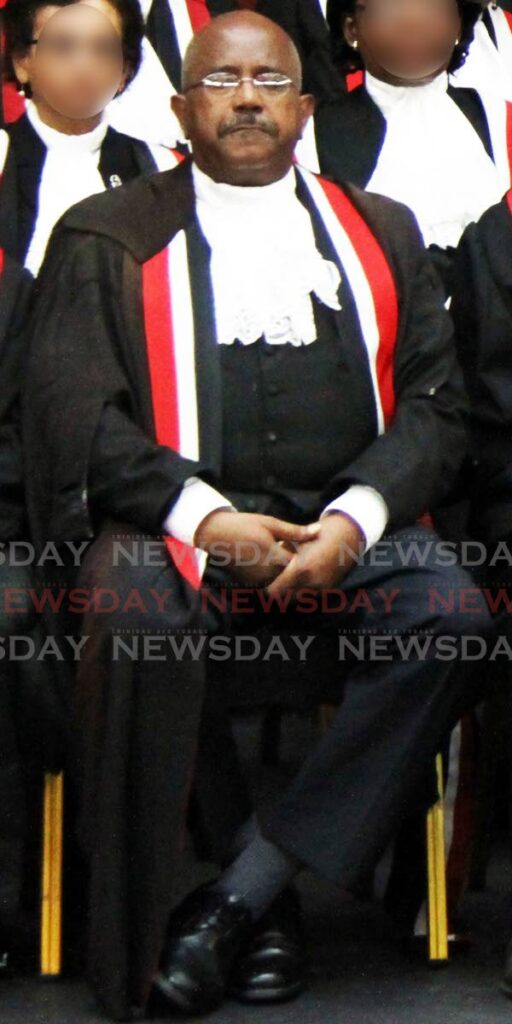Appeal Court gives Government TTRA green light

The Court of Appeal has ruled against stopping the Government from progressing with the operationalisation of the TT Revenue Authority (TTRA).
On Tuesday, Justices of Appeal Nolan Bereaux and Mark Mohammed, in a majority ruling, upheld a similar decision of Justice Betsy Ann Lambert-Peterson who, in June, refused to grant an injunction to customs officer, Teresa Dhoray, in her constitutional challenge.
Justice Peter Rajkumar dissented.
Dhoray and the Public Services Association (PSA) had appealed Lambert-Peterson’s decision and on Tuesday, there was a split decision with the two judges ruling that Lambert-Peterson was not “plainly wrong” to deny the injunction.
Dhoray is expected to seek permission to take her case for the injunction to the Privy Council.
On June 5, Lambert-Peterson dismissed the injunction application which sought to halt the operations of the TTRA, including the recruitment of staff.
She said after weighing the risks, the State should not be restrained, even by interim relief, from exercising its statutory powers or doing its duty to the public.
She also said to grant it would likely do more harm than good.
On June 29, the judge eventually recused herself from the case after Dhoray filed an application, saying she was not prepared to have the administration of justice trampled on nor did she intend to be a party to it by trying to persuade anyone she will be impartial or unbiased in the case because of her husband.
In their ruling, Bereaux and Mohammed said both sides had accepted there were serious issues to be tried in the case.
Bereaux, who wrote the majority decision, said he did not accept that public officers may suffer undue loss if an injunction was not granted and while “some administrative dislocation will occur” if the TTRA is operationalised, “adjustments can be made.”
“Indeed many may well benefit from the new administrative arrangements which may be liberated from the moribund regulations of the Public Service Commission (PSC).
“Those officers who retire can embrace the many opportunities retirement brings including new business ventures and job opportunity. Moreover, there is no right to guaranteed or continued employment by the State or the preservation of ordinary public offices from abolition.”
He also said that the greater prejudice weighed against the State since the legislation had been passed “in the public interest, for the greater good of TT, by providing what the Executive considered a more efficient system of revenue collection from which it expects greater revenue in-flows.”
“Any negative impact on revenue collection by the grant of an injunction and any adverse effect on the country’s international credit rating, greatly outweighs any prejudice to the appellants in the event that they succeed at trial.”
In considering whose case was stronger, Bereaux said the onus was on Dhoray and the PSA to show the TTRA Act was unconstitutional. “...I express no concluded view on the outcome of the trial.”
It was Rajkumar’s view that Lambert-Peterson was wrong and did not appreciate the possibility of irreparable harm to workers of the Inland Revenue Division (IRD) and the Customs and Excise Division (CED) if the act, or parts of it, was later found to be unconstitutional.
He also said even if an injunction was granted, revenue collection can continue since the IRD and CED were already functioning and have been since at least Independence in 1962.
In her constitutional claim, Dhoray is alleging that the TTRA Act has given the government political control over the authority and that the law facilitates and allows undue political influence and interference with the authority’s management.
In the injunction application, Dhoray accused the Government of secretly making moves to make the TTRA fully functional before the court rules on the constitutionality of the TTRA Act.
It is for this reason, she contended, the injunction must be granted to maintain the status quo.
Dhoray’s application specifically challenges section 18 of the TTRA Act, which deals with the enforcement division of the TTRA.
The application contends this forces employees at the IRD and CED, who are most affected, to decide by August 1 if they wanted to join the TTRA, or not.
The injunction application sought to have section 18 stayed pending the hearing and determination of the constitutional claim, as well as an order suspending the date of operationalisation of the TTRA.
By legal notice on April 14, President Christine Kangaloo proclaimed certain sections of the TTRA with effect from May 1.
Dhoray and the PSA were represented by former attorney general Anand Ramlogan, SC, Kent Samlal, Jayanti Lutchmedial and Vishaal Siewsaran. Representing the State were Douglas Mendes, SC, Simon de la Bastide, and Svetlana Dass.


Comments
"Appeal Court gives Government TTRA green light"